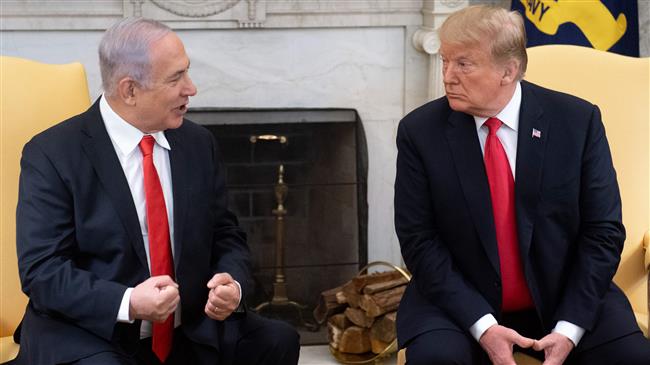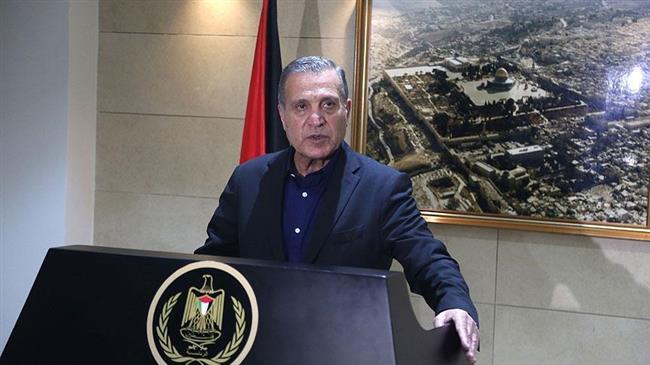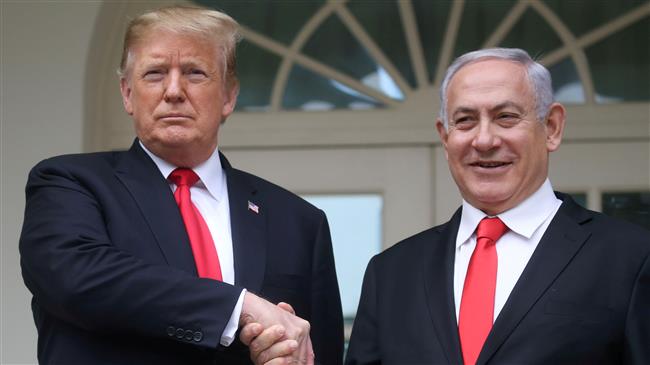Bahrain confab on Palestinians doomed to failure: Chief Palestinian negotiator
Chief Palestinian negotiator Saeb Erekat says the forthcoming US-led conference in Bahrain in support of President Donald Trump’s controversial proposal for “peace” between the Israeli regime and Palestinians is doomed to failure in the face of the Palestinian nation’s resistance and steadfastness.
“The Manama economic workshop, which the United States plans to hold this month, is an attempt to replace the principle of land for peace with the principle of money for peace,” the London-based al-Quds al-Arabi daily newspaper quoted Erekat, who is also the Secretary General of the Palestine Liberation Organization, as saying on Tuesday.
He condemned the US policy toward the Palestinian issue, predicting the failure of the upcoming confab, which is scheduled for June 25-26. During the event, the US is set to present its proposals for Palestine's economy as part of what it calls "the deal of the century."
“The United States has already implemented the political part of the deal of the century by recognizing al-Quds (Jerusalem) as the capital of Israel, transferring its embassy to the city, legitimization of settlements, trying to destroy UNRWA [the United Nations Relief and Works Agency for Palestine Refugees in the Near East] and recognizing Israel's sovereignty over the occupied Syrian Golan Heights.
“Only the economic aspect remains. They (Americans) want to replace the principle of land for peace with money for peace,” Erekat pointed out.
The high-ranking Palestinian official went on to say that Washington is seeking to link the economic projects it intends to implement with Israeli settlements, emphasizing that the so-called deal of the century is meant to ensure the prosperity of structures built on occupied Palestinian territories.
“Under President Trump’s plan, the Occupation (Israel) will determine our rights. We will have the right to education, but within the curriculum they decide. They may prevent us from developing the map of Palestine. They may even allow us to drive cars, but under special terms and conditions,” Erekat said.
He went on to say that the Bahrain confab will end in failure in the face of the Palestinian nations’ steadfastness and rejection of all schemes aimed at undermining the Palestinian cause.
Erekat reiterated the Palestinian leadership's rejection of the Manama workshop and refusal to participate in it, calling on Arab and non-Arab countries to boycott the event.
“While the international community calls for the establishment of an independent Palestinian state based on the 1967 borders with Jerusalem al-Quds as its capital, the United States rejects them all. Why should we go and participate in the (Bahrain) summit then?” the senior Palestinian official highlighted.
The Palestine Liberation Organization (PLO) and the Hamas resistance movement have called for an Arab boycott of the Bahrain confab.
Hamas, in a statement issued on May 20, also called on Arab countries to provide the Palestinian people with every support to confront and frustrate the “deal of the century.”
“We are following with great concern the American announcement about holding an economic workshop next June in the Bahraini capital of Manama,” Hamas said, describing it as the first American confab in support of the so-called deal of the century.
The movement also denounced any Arab participation in adopting and executing the deal, saying any attendance in the American-led Bahrain conference would be considered a deviation from Arab and Islamic values.
Trump’s “peace plan” has already been dismissed by Palestinian authorities ahead of its unveiling at the end of the holy fasting month of Ramadan and the formation of the new Israeli cabinet, most likely in June.
Speaking in the occupied West Bank city of Ramallah on April 16, Palestinian Prime Minister Mohammad Shtayyeh lashed out at the initiative, asserting it was “born dead.”
Shtayyeh noted that negotiations with the US were useless in the wake of the country’s relocation of its embassy from Tel Aviv to Jerusalem al-Quds, which Palestinians consider the capital city of their future state.
'Next to impossible' to rescue patients from Gaza's Kamal Adwan Hospital: Director
VIDEO | Vietnam current prosperity
Report blames gasoil exports for shortage at Iranian power plants
VIDEO | Hind Rajab Foundation names Israeli war criminals vacationing after Gaza genocide
VIDEO | Australians rally for Gaza ahead of Christmas festivities
VIDEO | Attacks on Sana'a
Iran reports further drop in annual inflation rate in December
Israel indicts two settlers over suspected spying for Hezbollah























 This makes it easy to access the Press TV website
This makes it easy to access the Press TV website